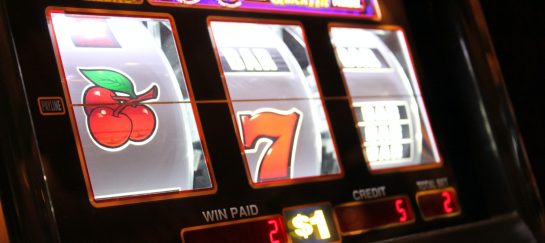
Win The Biggest Prize: What Psychological Tricks Do Casino Players Use?
Casinos are a place where people go to have fun and potentially win big money. But what many people don’t know is that casino players use psychological tricks to give themselves an edge over the house. In this blog post, we will discuss some of the most popular psychological tricks used by casino players. By understanding these tricks, you can put them into practice yourself and increase your chances of winning!
Psychological tricks people use in casinos – What you can learn from it
Playing games in a casino is not only about luck. While it is a significant factor, there are other things to consider if you want to up your game. Players use different psychological tricks to get an advantage over the house. If you know what they are and how they work, you can apply them yourself next time you play. In fact, many online casino’s with popular games like blackjack, poker, and slots offer bonuses for using these tricks. Furthermore, some of these psychological tricks are also used in other aspects of life. For example, in marketing or sales. On the other hand, if you are not careful, these tricks can also work against you.
The sunk cost fallacy
The sunk cost fallacy is a cognitive bias that dictates our decision-making. It is the idea that we are more likely to continue investing in something as long as we have invested so much in the past. So, even if it is not in our best interest, we are likely to continue because we have already invested so much. In addition, some popular online casino games might also make it harder to give up. Especially when you invest a large amount of money in a certain game.
For example, let’s say you’re playing blackjack and you’ve been losing for a while. You’ve already lost $100 but you think, “I can’t leave now, I’ve already lost so much. I might as well stay and try to win it back.” This is the sunk cost fallacy in action. You’re invested in the game and you don’t want to walk away with a loss. But, sometimes it is best to cut your losses and walk away.
The gambler’s fallacy
The gambler’s fallacy is the belief that if something happens frequently, it means that it’s less likely to happen in the future. But this thinking pattern doesn’t always hold up. For example, let’s say you’re playing roulette and the last 10 spins have landed on black. You might think, “Red is due, so I’m going to bet on red.” But, the reality is that the odds of the ball landing on black or red are still 50/50. Just because black has come up 10 times in a row, doesn’t mean that red is more likely to come up next.
When it comes to the utilization of the gambler’s fallacy, casinos often exploit it. For example, they might use a roulette wheel that is biased. This means that the ball is more likely to land on certain numbers or colors. If you’re not aware of this, you might think that you’re due for a win. But, in reality, the casino has the edge.
The hot hand fallacy
The hot hand fallacy is the belief that if someone has had a streak of good luck, they are more likely to have good luck in the future. For example, let’s say you’re playing blackjack and you’ve been winning for a while. Then, the hot hand fallacy might make you think, “I’m on a hot streak, I’m going to keep playing.” But, the reality is that each hand is independent of the last. Just because you’ve won a few hands in a row, doesn’t mean you’re more likely to win the next one.
The hot hand fallacy is also often exploited by casinos. For example, they might use positive reinforcement to keep you playing. They might give you free drinks or chips when you’re winning. This makes you feel good and you’re more likely to keep playing.
Anchoring
Anchoring is a cognitive bias that dictates our decision-making. It is the idea that we are more likely to base our decisions on the first piece of information we receive. For example, let’s say you’re playing poker and you’re dealt a pair of Aces. You might think, “I have a great hand, I’m going to bet big.” But, if everyone else at the table has a better hand than you, you might want to reconsider.
Anchoring can also be used in reverse. For example, let’s say you’re playing blackjack and you’re dealt a pair of 2s. You might think, “I have a bad hand, I’m going to bet small.” But, if the dealer is showing a 5, you might want to rethink that strategy.
The confirmation bias
Confirmation bias is another cognitive bias that dictates our decision-making. It is the idea that we are more likely to believe information that confirms our existing beliefs. For example, let’s say you’re playing blackjack and you’re dealt a pair of Aces. You might think, “I have a great hand, I’m going to bet big.” But, if the dealer is showing a 5, you might want to rethink that strategy.
You might also think, “I’m going to bet big because I always win when I have a pair of Aces.” This is an example of confirmation bias. You’re more likely to believe that you’ll win because you’ve had success in the past. But, the reality is that each hand is independent of the last. Just because you’ve won with a pair of Aces in the past, doesn’t mean you’re going to win again.
The emotional roller coaster
Gambling can be a roller coaster of emotions. You might feel elated when you win and disappointed when you lose. This emotional roller coaster can keep you coming back for more. When you’re gambling, it’s important to stay level-headed. Don’t let your emotions dictate your decisions. If you’re feeling angry or frustrated, it’s best to take a break.
This type of self-control can be hard to maintain, especially when you’re in the heat of the moment. But, it’s important to remember that casinos are designed to keep you playing. They want you to get caught up in the excitement and make impulsive decisions. If you can maintain a clear head, you’ll be more likely to make rational decisions. And, you’ll be more likely to walk away a winner.
In conclusion, there are a number of psychological tricks that casino players use to increase their chances of winning. From the hot hand fallacy to anchoring, these tricks can be exploited to your advantage. But, it is crucial to remain level-headed throughout the entire game so you can make decisions that are both rational and thought out. If you can do this, you’ll be more likely to walk away a winner.
Daily Newsletter
Subscribe to Jebiga for a dose of the best in gear, design, rides, tech and adventure.






